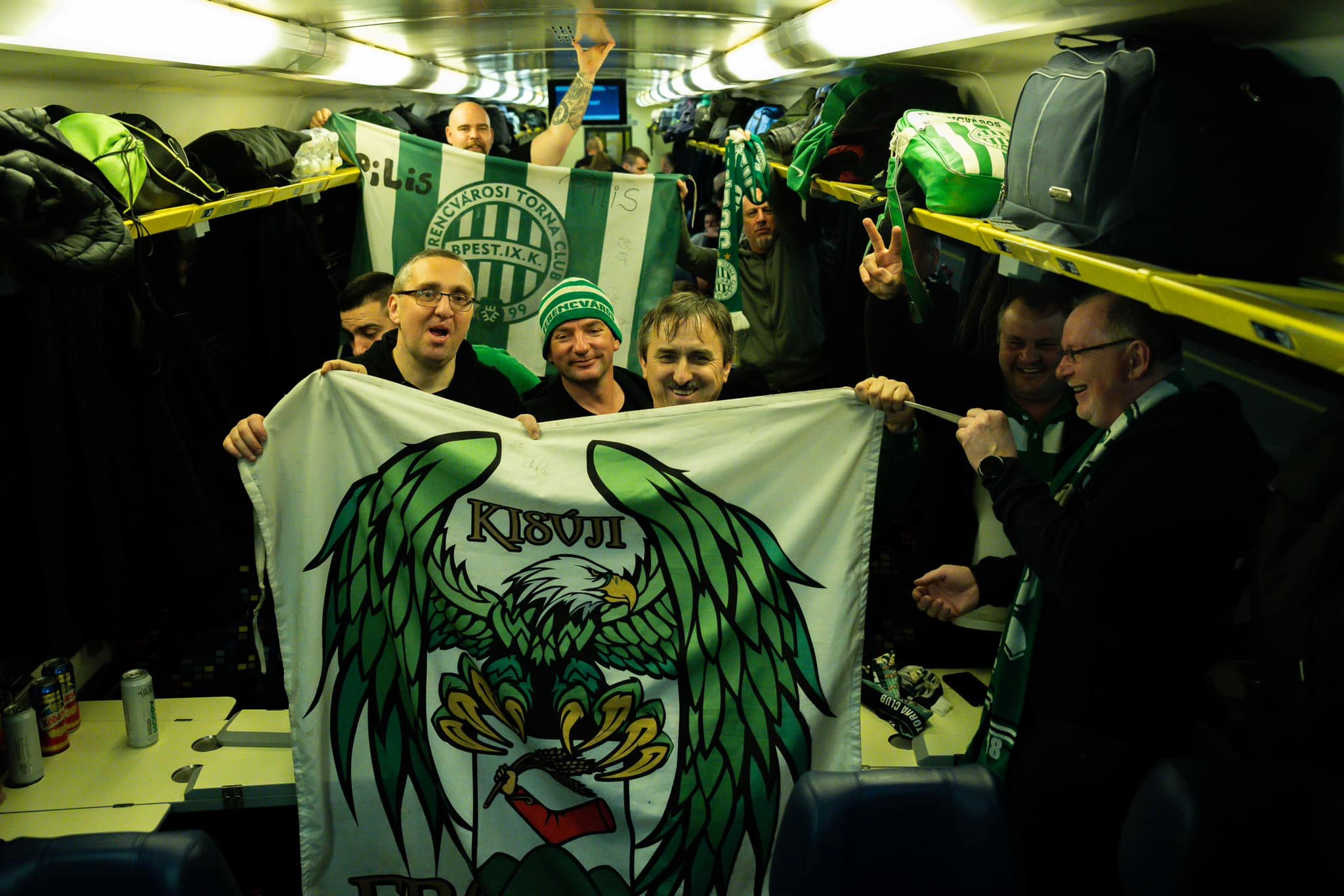
Hungarian champion Ferencváros plays against Bayer Leverkusen.Continue reading
“Violent hooligans could also come to the state capital (Stuttgart, the capital and largest city of the German state of Baden-Württemberg – Editor’s note) from Hungary,” explained Ralf Kusterer, the regional chairman of the German police union, in May, according to Südwestrundfunk radio. The “Hungarian hooligans” had already announced their “spectacle” on social media for the match against the German national team in Stuttgart on June 19, said the German police chief.
According to Südwestrundfunk radio, however, it is not just the “more than 5,000 troublemakers” from Hungary that are causing the police union concern. “The greatest danger comes from Islamist terror,” said Ralf Kusterer. In his remarks, he did not address the record number of politically motivated crimes in Germany last year, nor what the police intend to do during the European Championship to prevent such crimes.
To portray Hungarian fans as a security problem one month before the start of the European Championship seems defamatory and politically motivated to say the least.
By the dreaded “5,000 troublemakers,” the police chief probably meant the Carpathian Brigade ’09, a group of supporters of the Hungarian national football team. In Europe, it is common in club football for teams to have their own ultra base, but at the national team level, the existence of the Hungarian fan base is unique. What Kusterer calls a “spectacle,” namely the choreography performed by the fans at the start of a match, is a common practice in international football to cheer on the teams.
The Carpathian Brigade ’09 announced on their social media page that
the group is preparing for the group match against Germany with the “biggest away spectacle that will require the active participation of more than 10,000 Hungarian fans.”
In connection with the national team’s European Championship matches, the Carpathian Brigade ’09 asks Hungarian fans to “favor the usual black uniforms for our group members, and the rest of the fan camp is asked to wear clothing resembling the national team’s jersey (…) From the line-up to the final whistle, we want a festive atmosphere, but we specifically ask to avoid excessive alcohol consumption.” These requests from the ultra-football fans probably escaped the attention of the police union.
The Germans, who are supposed to be afraid of Hungarian football hooligans, are also not being told that a 32-strong Hungarian police unit has traveled to Germany to take part in the European Championship as a support force.
We have been in constant contact with the Hungarian fan groups for months. We expect them to cheer in a sportsmanlike manner and we will be partners in this, but we will take tough action against improper behavior,”
reads an official statement from the Hungarian police.
In addition to the Carpathian Brigade and the police, Sándor Csányi, the president of the Hungarian Football Federation (MLSZ), also called on Hungarian fans to bear in mind that “they represent not only the Hungarian national team but also the country and should therefore not allow themselves to be provoked,” but this probably escaped the notice of the German police.
Unfortunately, this is not the first time that Hungarian football fans have been portrayed as a security risk in Germany.
Last March, a train full of Hungarian fans on their way to the Ferencváros-Leverkusen match was stopped by German police at the Austrian-German border on the grounds that the train posed a threat to Germany. The Hungarian Football Federation, the Foreign Office, and MÁV had to work together effectively so that the train could continue its journey after a two-hour forced stop. In the end, there were no incidents during the match, but this was not reported in the German newspapers.
The German national football team has previously sent a political message to the Hungarians, although politics has no place in sport. At the 2021 European Championship, the Union of European Football Associations (UEFA) refused to allow rainbow-colored lighting in the Allianz Arena football stadium in Munich for the matches of the German and Hungarian national teams. German world champion goalkeeper Manuel Neuer has therefore replaced the German tricolor armband with a rainbow armband. The Germans also handed out 12,000 rainbow flags to the fans, and at the start of the match, a fan ran onto the pitch waving a rainbow flag. Euronews reported after the game that many spectators in the Munich stadium were also carrying rainbow flags to protest against the Hungarian government’s law, which the mainstream media described as anti-gay law.
On Wednesday, the German Football Association announced that the German national football team will wear its usual white kit for the opening game against Scotland on Friday and the match against Switzerland next Sunday, but will wear the away jersey, the color of which has caused controversy on social media, for the match against Hungary in Stuttgart in a week’s time.
View this post on Instagram
We will leave it to our readers to judge whether the choice of kit against the Hungarian national football team is another political message, but one thing is certain: the German national team no longer has to worry, as the Allianz Arena will be lit up with rainbow lights – UEFA has given the green light for June 22 and 23.
While the German police is monitoring Hungary’s participation in the European Championship with a seemingly political approach, the Hungarian national team is preparing in Allgäu for its first group match against Switzerland on Saturday. The positive reception of the national team in Germany by the locals gives hope that the Hungarians will be judged by the team’s performance at the European Championship and the actual attitude of the fans, and not by the negative sentiment made against them in the country.
Via Ungarn Heute; written by Enikő Enzsöl; Featured image via Facebook/Carpathian Brigade ’09